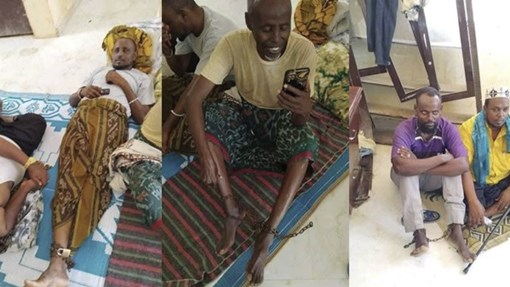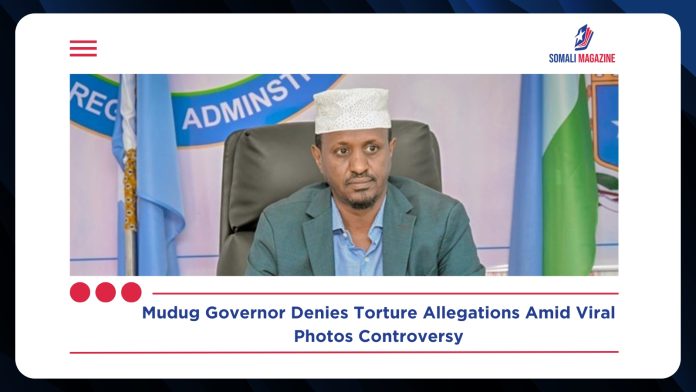Facebook Twitter (X) Instagram Somali Magazine - People's Magazine
Mudug Governor Faysal Abdullahi Sheikh (Jifojabsade) has denied allegations of torture following the circulation of viral photos showing Southwest elders and traders bound in Galkacyo. The images, which sparked outrage on social media, depicted men with their hands and feet tied, leading to accusations of mistreatment. However, Governor Faysal insists that the individuals voluntarily allowed themselves to be restrained as part of a symbolic act to pressure their community into settling a long-standing blood compensation dispute.
Speaking at a press briefing, the governor clarified that the men were not subjected to torture but had chosen to be detained to urge their families to pay compensation for a killing that occurred nearly two decades ago. “This was not an act of violence or coercion,” he stated. “The individuals in the photos were making a statement to their community, urging them to resolve the matter.”
The controversy has drawn sharp criticism from Somali federal lawmakers representing Southwest State, who condemned the incident as collective punishment. Member of Parliament Abdirashid Jilley argued that targeting an entire community over an unresolved case was unjustified, stating, “There are over 200 clans in Southwest. You don’t punish a whole region for the actions of one individual.” Fellow MP Mohamed Barre Mohamud echoed these sentiments, emphasizing that the act violated Islamic values and Somali traditions of hospitality.

Governor Faysal defended his administration’s handling of the situation, asserting that the families involved had reached a mutual understanding and that the images were being misinterpreted. “For 19 years, no one was arrested, and no compensation was paid. These individuals acted in desperation to push their community to respond,” he explained, adding that politicizing the issue was “unfortunate and unhelpful.”
The incident has reignited discussions on clan-based justice and reconciliation efforts in Somalia, where disputes over blood compensation often lead to prolonged tensions. Traditional elders and community leaders have called for a peaceful resolution, urging both sides to engage in dialogue rather than resorting to public displays of pressure.
As the debate continues, Somali authorities are monitoring the situation closely, with calls for a formal investigation into the circumstances surrounding the viral photos. The controversy underscores the complexities of clan-based justice and the challenges of maintaining stability in regions affected by historical disputes.

